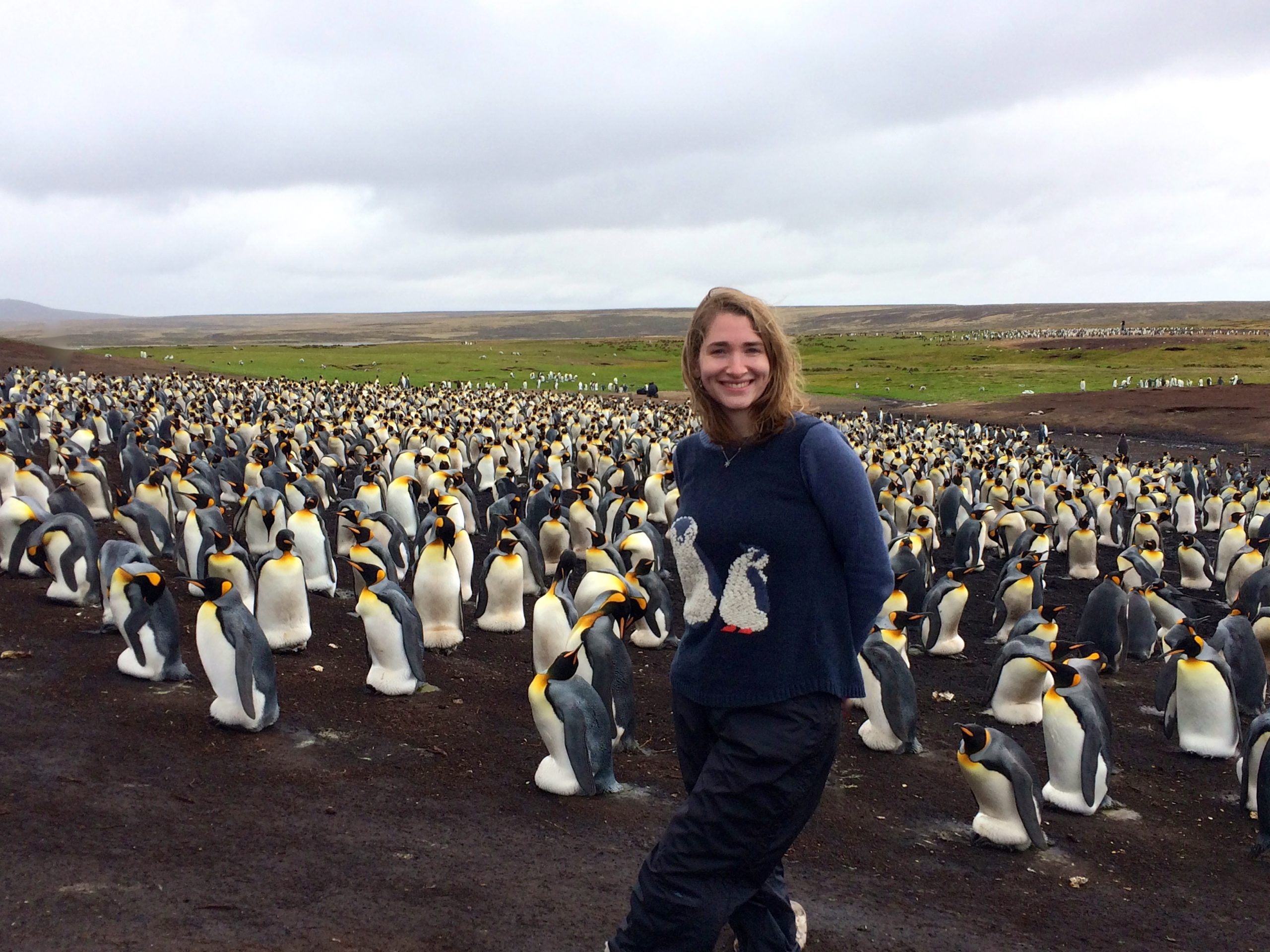
Lindsay Chura reflects on a scientific mission to promote research collaboration in the South Atlantic.
The Falkland Islands and South Georgia boast excellent natural sites for studying past climate trends and for investigating the historic populations and distributions of animals and plants.
Lindsay Chura and Ray Arnaudo
A Gates Cambridge alumna who led a Pan-American scientific delegation to the Falkland Islands earlier this year has co-published an article in a prestigious journal reflecting on the experience.
Dr Lindsay Chura, a senior policy advisor at the British embassy in Washington, DC, led the delegation to the Falklands in January on behalf of the UK Science and Innovation Network.
She and co-author Ray Arnaudo reflected on the experience in the June 2015 issue of the American Association for the Advancement of Science (AAAS) publication Science and Diplomacy. Arnaudo represented the AAAS Center for Science Diplomacy and formally worked in the US Department of State.
The aim of the scientific mission was to showcase the range of research opportunities in the natural and physical environments in the Falkland Islands and wider South Atlantic. The delegation included nine senior researchers (heads of institutes and heads of departments) from Brazil, Canada, Chile, Colombia, Mexico and the United States. A range of fields were represented, including marine biology, climate science, botany, and geology. A representative from National Geographic and three filmmakers from Uruguay documented the visit. They met with local people, businesses and government officials.
In Science and Diplomacy, Chura and Arnaudo, write: "The Falkland Islands and South Georgia boast excellent natural sites for studying past climate trends and for investigating the historic populations and distributions of animals and plants. These include lake sediments and peat bogs that date back to the last ice age in some areas. Several delegates used the opportunity presented by this trip to apply for research permits and collect samples in order to explore future collaborative studies."
The delegation defined a number of scientific priorities for future collaborative research partnerships in areas such as climate science, marine biology and oceanography. Elaborating on their experience, Chura and Arnuado explained: "It was extraordinary to observe delegates from across the Americas forge a cohesive research network, and there was palpable enthusiasm for building upon these partnerships at an institutional level. Outputs from this trip include the development of memorandums of understanding between the South Atlantic Environmental Research Institute (SAERI) and the research institutions represented on this delegation as well as the submission of joint research grant proposals."
They hope that the international network of researchers created by the trip will serve as a springboard for future work in the South Atlantic and show the prominent role that science and environmental issues can play in diplomacy.
This delegation to the Falkland Islands is the second scientific mission that Chura has led since joining the Embassy in 2013. In 2014, she led a Congressional delegation to London and Cambridge focused on the Prime Minister’s Challenge on Dementia.
Lindsay Chura [2008] was awarded a PhD in Psychiatry from the University of Cambridge.












